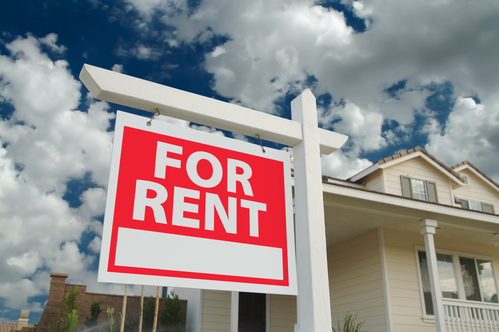You’ve looked at more than a dozen houses and apartments and have finally found one you want. It seems perfect – nice-sized living room, separate dining area, two bedrooms and a beautiful kitchen. But before you whip out a pen to sign that lease you need to ask the following 10 questions as they could keep you from making a very costly mistake.
When and how do I pay my rent?
You already know the rent but it’s also important to know when and how you will pay it. Your finances will be influenced by the monthly rent that you have to pay. It might compromise your other payments like making your debt relief program ineffective.
There are many apartment leasing companies where you can make your payments online or by using an automated debit system. On the other hand, you will most likely need a check or banker’s draft to pay a private landlord. In some cases, you might want to hand it over to the person or send it by mail. You should also learn if you will be required to pay fee if you pay online or by check. Plus, it’s important to find out about late fees and grace periods. For example, with some leases you might get up to five days after your due date to pay without being penalized.
How long is my lease?
This question probably seems like one that should go without saying but leases vary in length. For example, your landlord may want to rent out the unit for six months during the winter while he’s lapping up sun in Florida and will want a tenant for six months or less. Some leases are month-to-month, which could or could not work in your favor. In the case of a big apartment complex you might get a discount for signing a longer lease. You also need to ask what the fee would be if you break the lease. For example, you might be charged two months’ rent to break the lease and could also lose your security deposit.
What’s the security deposit and will I get it all back?
The typical security deposit is the equivalent of one months’ rent. However, some landlords might want just a nominal fee of maybe $300 or $500. According to law, all security deposits are refundable, which is why they are called deposits. However, different landlords have different ideas of what constitutes wear and tear so you should discuss this with your landlord. The net/net is that you may not get your entire deposit back – especially if you have a pet.
Which utilities am I responsible for?
Whether you or your landlord pays for some or all your utilities varies all over the board. If you’re leasing an apartment in a big complex you may find that your rent covers a lot of your utilities. But in other instances it may only be sewage and water or in a worst-case scenario – none of them. It’s important to know exactly your responsibilities in terms of the utilities. Also, be sure to ask about any additional costs you might encounter such as fees for installing cable or the Internet.
What’s your policy regarding guests?
Most landlords are not going to care whether you have guests for long periods of time. However, it doesn’t hurt to check the rules of the landlord or the apartment complex. But even if there is a rule prohibiting this, it’s tough to enforce. If your best friend asks to stay in your spare room for a few months, it’s unlikely that anything bad will happen. However, if you decide to move your partner in permanently you should probably consult your landlord as this may require a background check.
Will I need renters’ insurance?
It’s unlikely that your landlord or property manager will care whether you have renters’ insurance. Of course, it’s possible that it could be required. If so, this could put you over your monthly budget and make that new house or apartment off-limits. If you find you will be required to get renters’ insurance be sure to shop around to get the best deal that you can.
Are improvements allowed?
You’ll want that new place to feel like home. This means you may want to personalize it with wallpaper, paint, curtains or maybe even new tile or carpeting. You should discuss this with your landlord before you sign the lease and then put things in writing. You might find that any improvements you would like to make will need to be approved first. This could include something as simple as a coat of paint.

What’s your policy regarding pets?
There are good reasons why landlords don’t like pets. They can be noisy, ruin the carpeting, leave a bad smell or even tear up things. Most places have a pet policy in place because of this. The policy could be as simple as, “yes it’s okay to have a dog so long as it doesn’t bark all the time”. On the other hand, your landlord might require a nonrefundable fee to cover additional cleaning when you vacate or it might impose what’s known as pet rent. You should ask about the pet policy even if you don’t have a pet now because you wouldn’t want to have to give up the place later because you decide to get a cat or dog.
How am I supposed to leave the apartment?
Before you move in will the entire place be cleaned and repaired? You need to take a good look at the place as you could be in for a shock when you move in and find that some of the lighting is broken and the carpets are stained. Be sure to get in writing how the place will be delivered and how you will be required to leave it. It’s likely that you may have to pay for some services to get the place cleaned up when you move out so it will be ready for the next tenets. Ask if you will need to have the place professionally cleaned or just the carpet shampooed. If you fail to do whatever is required, the cost to do this will almost certainly be taken out of your security deposit.
How do you deal with emergencies and maintenance?
If you’re renting from a private landlord, you need to ask what will happen if your place requires maintenance and how soon you can expect for it to happen. However, if you’re renting in a big apartment complex it will have a maintenance staff and the odds that all you’ll need to do is call the front desk and the issue will be resolved. If you’re renting from an individual, you should ask if you can call someone to do the maintenance work and then subtract the cost from your rent or do all repairs have to go through him or her?
Tenant rights
You not only have responsibilities as a tenant, you also have rights. Following is a video that discusses these rights including how to get your security deposit back, how to request repairs and Fair Housing laws.





